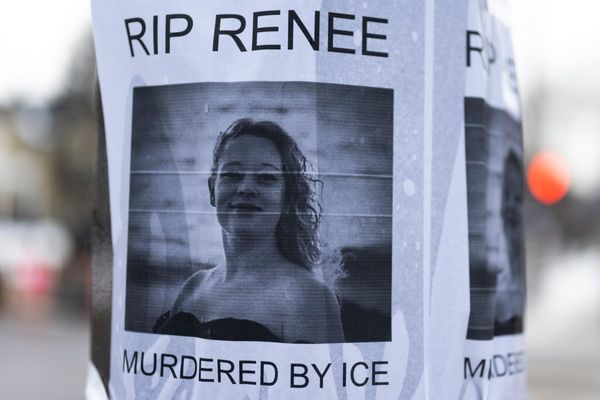
It’s one of the most celebrated opening lines in all literature, incantatory and strange: “Last night I dreamt I went to Manderley again.” Daphne du Maurier’s 1938 novel Rebecca – most famously adapted by Alfred Hitchcock into a luscious romantic melodrama – folds its key themes into that first sentence: the occluded night, where dreams and reality blur; the maddening loop of time and memory; the house as refuge and prison, pulling its inhabitants back into the murky waters of the past.
In adapting the novel for the stage, director Anne-Louise Sarks is faced with a difficult task. While the book completely submerges the reader in the morbid intensity of its unnamed protagonist’s febrile thought processes, the film has the closeup as its primary weapon, all that horror flitting across Joan Fontaine’s alabaster face. On stage, these elements are harder to conjure; there’s a pull toward naturalism, something more grounded and constrained.
The play opens – as it does in the book and the film – with that dream of a ruined house slowing being reclaimed by nature, before plunging us back to the moment our central couple meet in Monte Carlo. She (Nikki Shiels) is a “paid companion” to an irritating and bitter old woman named Mrs Van Hopper (Pamela Rabe), who treats her appallingly. He is Maxim de Winter (Stephen Phillips), a mysterious widower, rich but also moody and taciturn. They marry in haste, but when he takes her back to his ancestral home, back to Manderley, she begins to suspect she’s made a terrible mistake.
Manderley is haunted, not literally but in every other way, by the former Mrs de Winter, the impossibly beautiful, supremely confident Rebecca, who died the previous year in a boating accident. The new Mrs de Winter realises with dawning dismay that she can never compete with this dead spouse, a fact the housekeeper Mrs Danvers (Rabe again)– a creeping gargoyle of a woman, somehow both unctuous and severe – insists on reminding her at every turn. Increasingly lonely and paranoid, she feels her marriage slipping away from her until she discovers a terrible secret about Rebecca that will change the couple’s lives for ever.
There is a folkloric aspect to du Maurier’s story, evoking both the myth of Bluebeard and the “wife in the walls” of Charlotte Brontë’s Jane Eyre. Sarks and designer Marg Horwell suggest a sense of the Gothic rather than represent it directly, often isolating Shiels in black space while others skulk around her with dresses and flowers and cups of tea. The production is strongest when it gives into dream logic; its best scenes are animated by a swirling sense of anticipation and lasciviousness, as the rooms revolve and are reflected in a giant mirror above the playing space.
Too often, though, the elements fail to cohere. Plot details become muddied, vital scenes are rushed and characterisation is confused. Minor players are introduced – notably Max’s imperious sister Beatrice (Rabe) – but are under-utilised and underdeveloped. Sudden leaps in the chronology don’t help. Audience members without a solid grasp of the story may find themselves adrift.
Thankfully the performances are rich and compelling. Shiels is magnificent as the teetering bride, desperately insecure but steely in her own way. She manages to turn aching vulnerability into something noble, with a potent sensuality under the surface, as if she’s being possessed by Rebecca and possessing her in turn. Rabe is masterful, bringing more nuance and suppressed grief to the role than previous iterations (although Judith Anderson’s performance in the original film is insurmountable). Her Danvers is not as scary or as louche as du Maurier’s – there’s no “skull face” or overt malevolence – but it is rooted in damaged humanity.
Toby Truslove brings enormous charm and energy to the twin roles of Frank (prim and good-natured) and Favell (rakish and strangely seductive), and Phillips makes a genuine attempt to smooth the surfaces of du Maurier’s deliberately unlikeable leading man. Maxim is almost unplayable as written – boorish and temperamental, a nightmare of patrician entitlement from which every women would run a mile – but Phillips brings a level of magnanimity to him, a kind of frazzled dignity.
The production reaches for the kind of synthesis of technology, design and performance we saw in STC’s famed The Picture of Dorian Gray, but where that adaptation brought grandeur to its negative spaces and coherence to its storytelling, this one feels aesthetically stretched and dramatically stilted. Certain aspects work brilliantly – the central scene in the bedroom, where Danvers shows the new Mrs de Winter the dead woman’s clothes, daring her to slide her hands into the velvet slippers, is wonderfully spooky and intense – but others fail to land. The whole sequence with the ballgown, the dress and the painting is disastrous, muddled and lacking in impact.
All that mirroring in the novel (the two Mrs de Winters, Maxim and Mrs Van Hopper, Danvers and the house itself) might be cleverly reflected in the design but it doesn’t make it into the script, and the result feels like a missed opportunity as well as a major disappointment. Sarks refracts the play through the prism of feminism, but she misses another lens altogether, that of class. Mrs de Winter can in fact never go back to Manderley because she was never allowed in, and the couple are destined to wander the hotels of Europe like Prince Edward and Wallis Simpson looking for the next game of bridge. Plus ça change, as they say in the classics.
Rebecca is on at MTC, Sumner Theatre until 5 November







